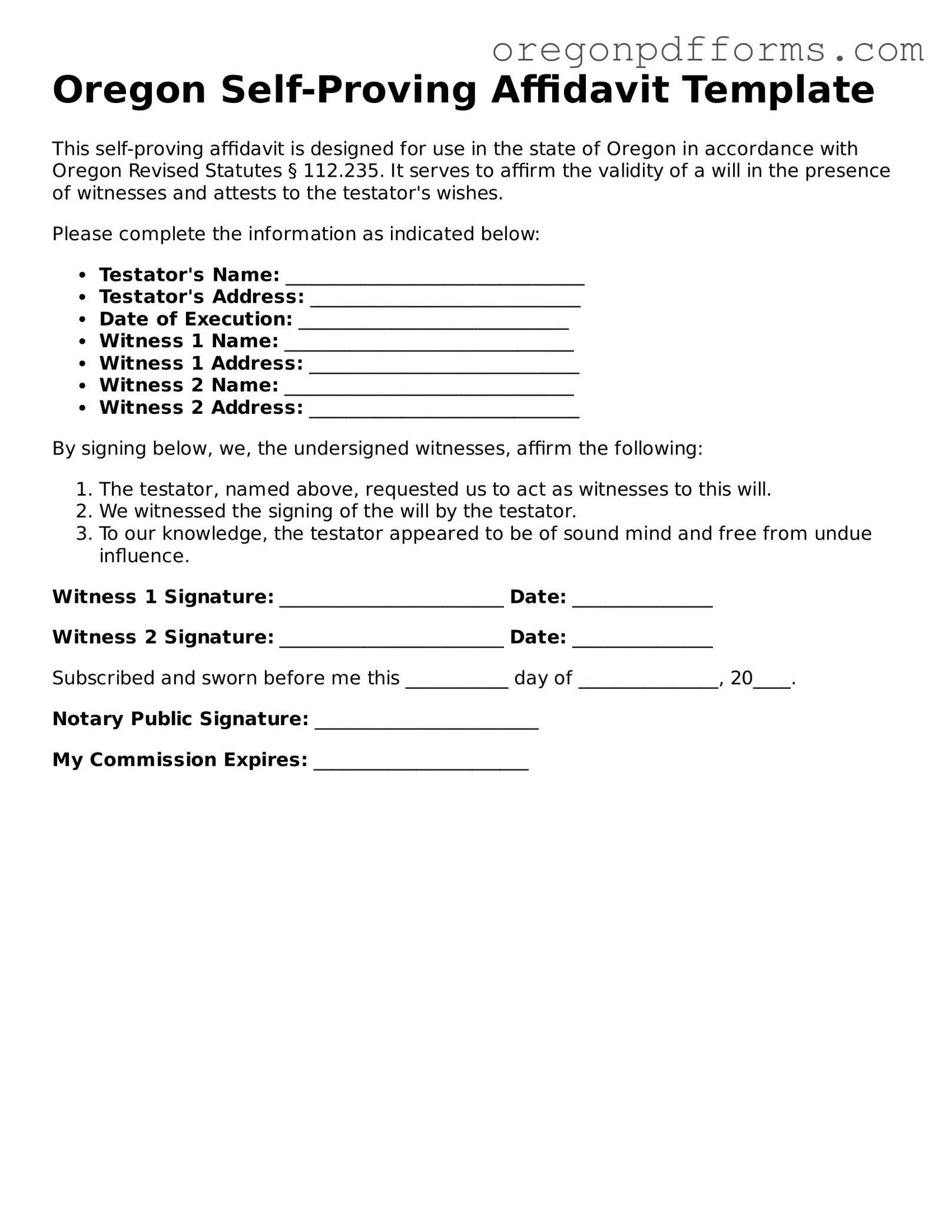The Oregon Self-Proving Affidavit form is a legal document that allows a will to be validated without the need for the witnesses to testify in court. By signing this affidavit, the testator and witnesses affirm that the will was executed properly according to Oregon law. This process simplifies the probate process and can save time and resources for the estate's beneficiaries.
Who should use the Self-Proving Affidavit?
This affidavit is beneficial for individuals who have created a will and wish to ensure that it can be easily validated after their passing. It is particularly useful for those who may not have easy access to the witnesses at the time of probate. Anyone drafting a will in Oregon is encouraged to consider including this affidavit to streamline the legal process for their heirs.
How do I complete the Self-Proving Affidavit?
To complete the Self-Proving Affidavit, follow these steps:
-
Ensure that the will is properly executed with the required number of witnesses.
-
Have the testator and witnesses sign the affidavit in front of a notary public.
-
Keep the signed affidavit with the will in a safe place.
It is important to ensure that all signatures are clear and that the document is filled out completely to avoid any issues during probate.
Is a notary public required for the Self-Proving Affidavit?
Yes, a notary public is required to witness the signatures on the Self-Proving Affidavit. This adds an extra layer of verification to the document, confirming that the signatures are authentic and that the individuals signing the affidavit were competent to do so at the time of signing.
Can I revoke a Self-Proving Affidavit?
A Self-Proving Affidavit can be revoked if the testator decides to change their will or if they create a new will that does not include the affidavit. It is essential to ensure that any previous wills and affidavits are properly revoked to avoid confusion. Communicating these changes clearly to all parties involved can help prevent disputes later on.
What happens if I do not use a Self-Proving Affidavit?
If a Self-Proving Affidavit is not used, the witnesses to the will may be required to testify in court during the probate process. This can lead to delays and additional legal complications, especially if witnesses are unavailable or if there are disputes regarding the validity of the will. Using the Self-Proving Affidavit can help avoid these challenges and provide peace of mind for both the testator and their beneficiaries.

